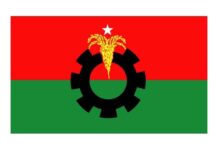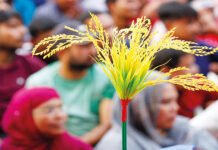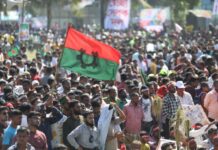Bangladesh 2017 Human Rights Report
U.S. Embassy in Bangladesh

Executive Summary

According to its constitution, Bangladesh is a secular, democratic people’s republic. Prime Minister Sheikh Hasina and the Awami League (AL) party that she led assumed power in 2009. The 2014 parliamentary elections that resulted in the prime minister and AL’s re-election were characterized by domestic and international observers as falling short of international standards.
Civilian authorities maintained effective control over the security forces.
The most significant human rights issues included: extrajudicial killings, torture, arbitrary or unlawful detentions, and forced disappearances by government security forces; restrictions on civil liberties, including freedom of speech, press, and the activities of nongovernmental organizations (NGOs); a lack of freedom to participate in the political process; corruption; violence and discrimination based on gender, religious affiliation, caste, tribe, including indigenous persons, and sexual orientation and gender identity also persisted and, in part, due to a lack of accountability. Trafficking in persons remained a serious problem; as did restrictions on worker’s rights and the worst forms of child labor.
There were reports of widespread impunity for security force abuses. The government took limited measures to investigate and prosecute cases of abuse and killing by security forces. Public distrust of police and security services deterred many from approaching government forces for assistance or to report criminal incidents.









